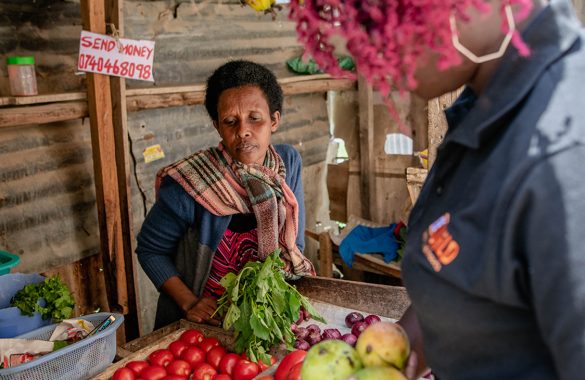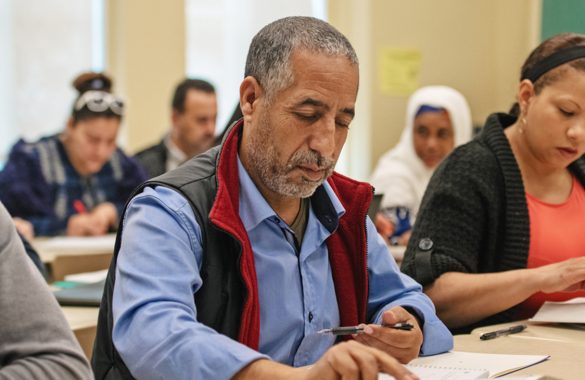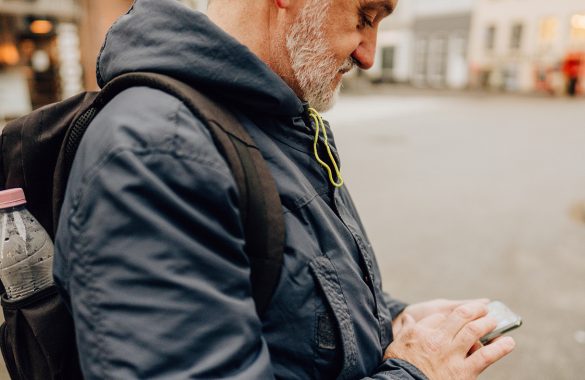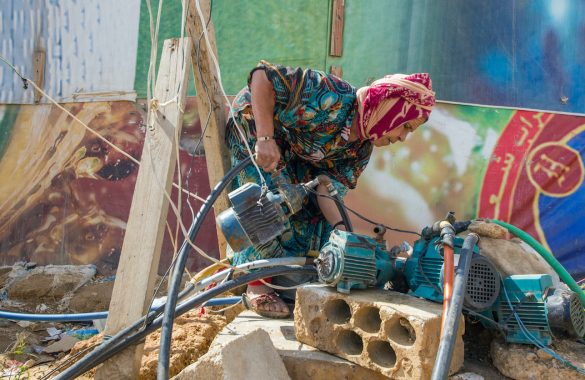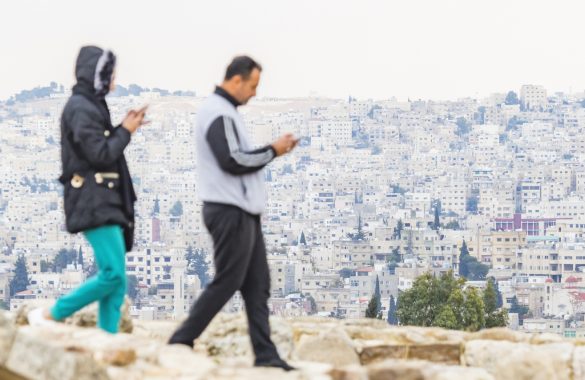Can a welcoming society’s goodwill translate into better outcomes for refugees? Following the 2022 Russian invasion of Ukraine, many Germans opened their homes to those fleeing the conflict. This unprecedented response from civil society allowed researchers to ask a critical question: Does private hosting by volunteers improve refugees’ integration?
How can building social capital transform the economic lives of refugees? IPL partnered with International Rescue Committee (IRC) to test an intervention that aims to build business networks among refugee and host entrepreneurs through business groups and neighborhood associations. The study looks at the impact of these groups, along with cash assistance, on participants’ networks and explores how different network types and changes affect business success, social cohesion, and local economic conditions.
With large-scale displacement crises on the rise, understanding how to effectively support refugee integration is becoming an urgent policy need. A study of two language training programs Germany offered refugees reveals program design matters: the temporary, ad hoc language program the German government rapidly assembled in 2015-16 had no impact on refugee employment while its pre-existing intensive language course did help refugees secure jobs.
For Syrians fleeing conflict and eking out a new life abroad, Facebook offers access to vital information on safe travel routes, asylum, and jobs. But how much of what they encounter is from trusted sources? IPL researchers mapped the online information environment for Syrian refugees, demonstrating the critical role humanitarian organizations play in providing timely, accurate information in crisis situations.
From 2015 to 2016, Greece witnessed an influx of almost 1 million forcibly displaced people making their way to Northern and Western Europe. When neighboring nations closed their borders, Greece transformed from transit site to a hosting country. In 2022, researchers at IPL conducted a survey of asylum seekers and refugees to learn about the range of opportunities, obstacles, and relevant issues displaced people living in Greece experience.
In the Middle East, countries that host large numbers of Syrian refugees now are taking active steps to encourage their return. Meanwhile, NGOs have started to consider steps to aid refugees in going home. Do refugees want to go back to Syria? And if so, when and how? IPL researchers surveyed Syrians in Lebanon to find out. The results can help inform the humanitarian and policy response to future refugee crises.
Whether you do academic research or nonprofit work, you've probably experienced the challenges that come with conducting surveys. It's difficult to keep in touch with study participants or clients over time, and surveys can be expensive and time-consuming. IPL found a solution in WhatsApp, which allows respondents to fill out a survey through automated messages on their mobile phones.
Most of the world's refugees live in developing countries. Those countries are largely overlooked in the research on dynamics between refugees and the communities hosting them. IPL conducted a survey in Jordan, one of the top destinations for Syrian refugees. It found that most Jordanians have strong humanitarian concern for the refugees, even though they believe the refugee crisis has strained their economy and social services.
When refugees are resettled in the United States, they're assigned to live in a specific location. But many refugees move to a different state within their first several years in the country. What are they looking for? According to a new dataset on nearly 450,000 refugees, they mostly seek two things that will help them rebuild their lives: better job markets and others from their home country.


